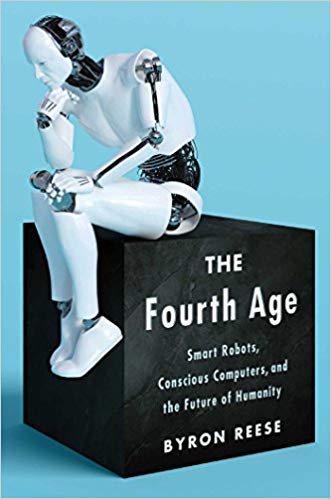More than at any time before in history, we are questioning the impact of technology on our lives, society, and even human existence itself. Technology is changing life as we know it at such a breakneck speed that it leaves us reeling from the disruption and need to understand what each new advancement will mean for our future: there is a surfeit of predictions but of course no one knows for certain. In The Fourth Age: Smart Robots, Conscious Computers, and the Future of Humanity, Byron Reese takes us back in time to put technology in perspective as we know it today.
Don’t let the double-barrel title of this book deceive you into thinking that this is another technical deep-dive into today’s emerging technologies. It is first of all extremely entertaining, and second of all meant for everyone, not necessarily in that order. What the author does is to travel back and forth in time to deconstruct the core beliefs that undergird the various views on robots, jobs, AI, and consciousness. The book is a guide to the thorny issues that undergird the opinions and precautions that experts so passionately and confidently avow will ‘make the world a better place’. With stories and examples from history, research and just everyday life, this book makes you laugh out loud at the wit it is generously sprinkled with throughout. You will find yourself wanting to mark passages and sentences for discussion with others. The goal of this book is to help the reader understand his own beliefs and from then on understand the claims of technologists. It is a brisk walk through 100,000 years of human history, discussing big questions along the way, and exploring the future to come.
The questions the book grapples with aren’t about transistors, neurons and algorithms. They are about the nature of reality, humanity, and the mind. According to Reese, confusion happens when we begin with ‘What jobs will robots take from humans?’ instead of ‘What are humans?’ He believes that until we answer that second question, we cannot meaningfully address the first.

